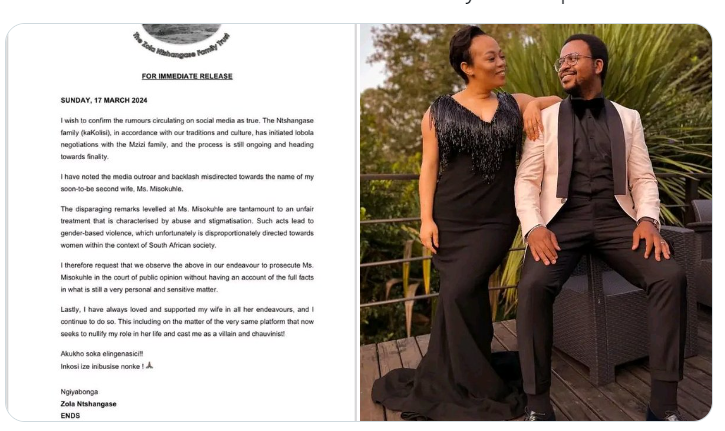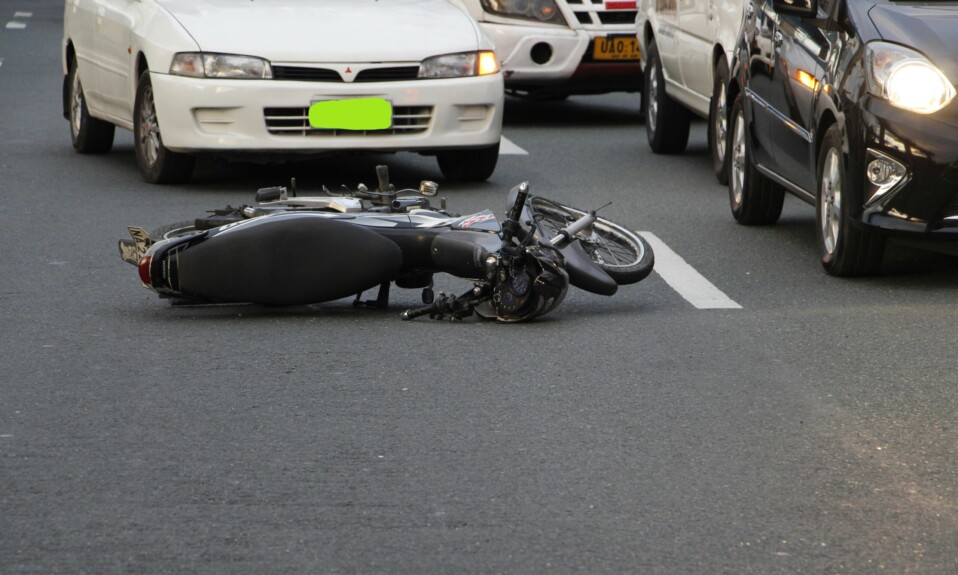In the realm of legal matters, understanding car collision law is paramount. Whether navigating insurance claims or seeking compensation for damages, familiarity with this area of law is crucial. With roots tracing back to the early 20th century, car collision law has evolved significantly to address the complexities of modern road incidents. This legal framework governs fault determination, liability assignment, and the resolution of disputes arising from car accidents. By grasping the nuances of car collision law, individuals can protect their rights and make informed decisions in the aftermath of a vehicular collision.
- Understand fault basics in car collision cases to determine liability accurately.
- Be aware of Virginia regulations regarding at-fault determination and insurance coverage.
- Seek legal assistance promptly to navigate complex cases and protect your rights effectively.
- Take post-collision steps seriously, including dealing with insurers cautiously to ensure fair compensation.
- Protect your rights by staying informed about the legal aspects of car collisions and seeking professional guidance when needed.
- Act promptly and decisively to safeguard your interests and ensure a smoother resolution after a car collision.
Fault Basics
Definition
Car collision law in Virginia governs the legal aspects of car accidents within the state. It encompasses regulations and statutes that dictate how liability is determined in such cases. The scope of car collision law includes insurance claims, compensation, and legal procedures.
Liability Aspects
Liability in car collisions refers to the legal responsibility for the accident. In rear-end collisions, the driver who fails to maintain a safe distance and collides with the vehicle ahead is typically considered at fault. Factors influencing liability include speed, road conditions, and driver behavior.
Rear-End Specifics
Fault Determination
Determining fault in car accidents involves assessing the actions of each driver involved. Common scenarios where fault can be assigned include running red lights, distracted driving, and failure to yield. Evidence such as witness statements, police reports, and vehicle damage plays a crucial role.
Legal Implications
Being involved in a car collision can have various legal consequences. Legal proceedings may result in fines, license suspension, or even criminal charges depending on the severity of the accident. Understanding these implications is vital for ensuring compliance with the law.
Virginia Regulations for Car Collision Law
Key Regulations
Virginia enforces strict regulations for car collisions, including rules on right-of-way, speed limits, and traffic signals. These regulations significantly impact collision cases by establishing the standard of care expected from drivers. Following these regulations is crucial as they determine liability in accidents.
Drivers must adhere to Virginia’s regulations to avoid being deemed at fault in collision cases. By understanding and abiding by these rules, drivers can protect themselves legally and ensure they are not held responsible for accidents they did not cause. The adherence to regulations plays a pivotal role in determining fault and liability in car collision scenarios.
Drivers’ Rights
In Virginia, drivers have specific rights when involved in car collisions, such as the right to seek compensation for damages and injuries. It is essential for drivers to be aware of their rights and how to assert them effectively in legal proceedings. Knowing one’s rights empowers drivers to navigate collision cases with confidence.
To safeguard their rights after a car collision, drivers should seek legal counsel promptly, document the incident thoroughly, and refrain from admitting fault. Asserting one’s rights involves engaging with insurance companies, seeking medical treatment, and pursuing legal action if necessary. Understanding and asserting these rights are crucial steps in protecting oneself after a collision.
Responsibilities
Code Overview
The legal code governing car collisions in Virginia encompasses statutes related to negligence, insurance requirements, and legal procedures following an accident. This code dictates how liability is determined, the process for filing claims, and the obligations of drivers involved in collisions. Familiarizing oneself with this code is vital for all motorists.
The legal code influences collision cases by providing a framework for resolving disputes, determining compensation amounts, and assigning responsibility for damages. Sections of the legal code that drivers should pay particular attention to include those outlining reporting requirements after accidents, insurance coverage minimums, and procedures for settling disputes.
Key Statutes
Key statutes applicable to car collision law in Virginia cover areas such as fault determination, damage caps, and time limits for filing claims. These statutes play a critical role in legal proceedings by establishing guidelines for proving fault, calculating damages, and adhering to deadlines. Compliance with these statutes is essential for successful resolution of collision cases.
In legal proceedings, key statutes are applied to assess liability, quantify damages, and determine the outcome of claims brought before courts or insurance companies. Complying with these statutes ensures that drivers fulfill their legal obligations following a collision and receive fair treatment under the law.
At-Fault Determination
Process Overview
The process of determining fault in a car collision case involves several crucial steps. After a collision, individuals should first ensure everyone’s safety and call the authorities to report the accident. Next, they need to exchange contact and insurance information with the other parties involved. Then, documenting the scene by taking pictures, gathering witness statements, and noting relevant details is essential. Following this, contacting insurance companies to report the accident and seeking medical attention if necessary are vital steps. Finally, consulting with legal professionals for guidance on navigating the legal procedures can help individuals protect their rights.
Evidence Gathering
Gathering evidence after a car collision is pivotal in establishing liability and seeking compensation. Valuable evidence includes photographs of the accident scene, damage to vehicles, medical records, police reports, and witness statements. To effectively gather evidence, individuals should document injuries, vehicle damages, road conditions, weather at the time of the accident, and any traffic signs or signals present. Preserving evidence by keeping all relevant documents and not repairing vehicles before an assessment is crucial for building a strong case.
Expert Consultations
Scene Analysis
Professionals analyze the scene of a car collision meticulously to determine fault accurately. They examine skid marks, vehicle positions, road conditions, traffic signals, and any other factors contributing to the accident. Scene analysis plays a critical role in recreating the events leading up to the collision and understanding each party’s actions.
Legal Standards
Legal standards in car collision cases refer to rules and guidelines that courts use to determine fault. These standards consider factors like traffic laws, right-of-way rules, speed limits, and driver behavior. Applying legal standards helps in objectively assessing each party’s actions during the collision event.
Insurance Coverage for Car Collision Law
Policy Details
Insurance policies play a crucial role in car collision cases. Understanding your policy is essential for determining liability and compensation. Policies vary in coverage and exclusions, so reviewing them carefully is vital. Individuals should be aware of their policy limits, deductibles, and coverage types to make informed decisions in case of an accident.
Accident Coverage
When it comes to accidents, insurance coverage provides financial protection. Options such as liability coverage, collision coverage, and comprehensive coverage are available. These coverages can help with medical expenses, vehicle repairs, and property damage resulting from collisions. Claiming accident coverage involves reporting the incident to the insurance company, providing necessary documentation, and cooperating with the claims process.
No-Fault System
Fault vs. No-Fault
In car collision law, fault and no-fault systems determine how compensation is awarded. Fault-based systems require establishing who was responsible for the accident to receive compensation. No-fault systems, on the other hand, furnish compensation irrespective of fault. Determining fault involves examining factors like traffic laws violations, witness statements, and police reports. The choice between fault and no-fault can significantly impact legal proceedings and the outcome of a case.
Coverage Limits
Insurance coverage in car collision cases has limits that affect compensation amounts. These limits determine the maximum amount an insurer will pay for damages or injuries. Understanding these limits is crucial for individuals involved in accidents as they can impact the overall settlement amount received. Navigating coverage limits effectively involves consulting with legal professionals to ensure fair compensation based on policy provisions.
Legal Assistance
Finding an Attorney
When seeking legal help after a car collision, finding an attorney is crucial. Look for experience in handling similar cases and a successful track record. Consider specialization in car accident law.
- Ask friends and relatives or other reliable sources for recommendations.
- Investigate online ratings and reviews to determine the attorney’s standing.
- Schedule consultations with potential lawyers to assess their communication and understanding of your case.
Consultation Importance
Consulting with an attorney post-collision can significantly impact your case. Early legal advice helps navigate complex laws and understand your rights. Attorneys provide guidance on next steps.
- Lawyers can advise on dealing with insurance companies and ensuring fair compensation.
- Consultations clarify legal processes, deadlines, and potential outcomes.
- Seeking early advice prevents costly mistakes and ensures timely evidence preservation.
Attorney Roles
Case Preparation
In car collision lawsuits, case preparation is key to securing a favorable outcome. Attorneys gather evidence, interview witnesses, and assess damages meticulously. They strategize to build a strong case.
- Collect all relevant documentation such as medical records and police reports.
- Analyze the circumstances leading to the collision to determine liability.
- Develop a comprehensive strategy for presenting evidence in court effectively.
Legal Representation
Legal representation in car collision cases involves advocating for clients’ rights. Attorneys negotiate with insurance companies, represent clients in court, and work towards maximizing compensation. They ensure clients’ interests are protected throughout the legal process.
- Attorneys handle all communication with insurers, easing the burden on clients.
- They have expertise in negotiating settlements that reflect the full extent of damages.
- Legal representation provides peace of mind knowing professionals are fighting for your best interests.
Post-Collision Steps
At the Scene
When involved in a car collision, stay calm and assess any injuries before taking further action. Sharing insurance and contact information is recommended between drivers.
Remember to document the scene by taking pictures of the vehicles’ positions and any visible damages. Call emergency services if needed.
Reporting the Accident
Reporting a car collision to the authorities is crucial for legal purposes. Ensure you call the police to file an official report of the accident.
Include essential details in the report such as date, time, location, and a description of how the accident occurred. This paperwork may be essential for filing insurance claims.
Legal Rights Protection
Immediate Actions
After a car collision, ensure safety by moving vehicles to a safe spot if possible. Check for injuries and seek medical attention promptly if needed.
Inform your insurance provider of the incident and adhere to their guidelines. Abandon culpability when the collision takes place.
Documentation
Documenting details after a car collision is essential for legal protection. Record witness statements, take photos of damages, and gather contact information from witnesses.
Organize all documentation, including medical records, repair estimates, and communication with insurance companies. Keep all accident-related evidence intact.
Dealing with Insurers
Claim Process
Filing a claim after a car collision is crucial for seeking compensation. Gather all relevant information such as insurance details, accident reports, and medical records. Make quick contact with your insurance provider to begin the procedure.
Next, provide detailed information about the accident when filing the claim. Be honest and accurate to avoid complications during the process. Insurance companies will investigate the claim before settling. Stay in touch with your adjuster for updates on the progress.
Navigating challenges during the claim process is common. Delays, disputes over liability, or inadequate settlements may arise. Seek legal advice if needed to understand your rights and options better.
Negotiating Settlements
When negotiating settlements, prepare by gathering evidence to support your claim. Present this evidence clearly and persuasively to the insurance company. Consider hiring a lawyer specializing in car collision cases for expert guidance.
During negotiations, remain firm on what you believe is a fair settlement. Avoid accepting low offers out of desperation. Consult with legal experts to assess whether the proposed settlement adequately covers your damages.
Seeking legal advice during negotiations is crucial for protecting your interests. Lawyers can help evaluate settlement offers, negotiate effectively, and ensure you receive fair compensation for your losses.
Dispute Resolution
Insurance Adjusters
Insurance adjusters play a vital role in evaluating car collision claims. They assess damages, liability, and coverage based on collected evidence and policy terms. Interact with adjusters professionally and provide necessary documentation promptly.
Understanding how insurance adjusters work can help streamline the claims process. Cooperate by providing requested information but be cautious of potential tactics to devalue your claim. Ask questions about any questions or discrepancies.
Legal Interventions
Legal interventions offer effective solutions for resolving car collision disputes efficiently. By involving legal professionals, individuals can navigate complex legal procedures and ensure their rights are protected throughout the resolution process.
Legal interventions expedite dispute resolution by leveraging legal expertise and strategies tailored to each case’s specifics. Seeking legal assistance can lead to favorable outcomes in settling disputes arising from car collisions.
Complex Cases Handling
Multi-Party Involvement
In car collision cases involving multiple parties, determining liability becomes intricate and challenging. With various individuals sharing fault, identifying the responsible party can be complex. Navigating legal proceedings in such scenarios demands thorough investigation and legal expertise.
When multiple parties are involved, liability determination often requires detailed analysis of each party’s actions leading to the collision. Each individual’s degree of fault must be assessed to allocate responsibility accurately. Seeking legal counsel is crucial to navigate the complexities of multi-party involvement effectively.
To navigate legal proceedings with multiple parties, it is essential to gather all relevant evidence, including police reports, witness statements, and medical records. Collaborating with experienced attorneys specializing in car collision cases can streamline the process and ensure fair representation during negotiations or court proceedings.
Severe Injuries Cases
Car collision cases involving severe injuries introduce unique considerations that significantly impact legal proceedings. The extent of injuries sustained by individuals involved can influence the compensation sought and the overall outcome of the case. Seeking proper medical treatment and legal guidance is paramount in such situations.
Severe injuries in car collision cases not only affect physical well-being but also have long-term implications on financial stability and quality of life. Pursuing compensation for severe injuries requires meticulous documentation of medical expenses, rehabilitation costs, lost wages, and pain and suffering endured as a result of the collision.
When seeking compensation for severe injuries in car collision cases, it is crucial to work closely with experienced attorneys who specialize in personal injury law. These professionals can advocate for fair compensation based on the severity of injuries sustained and the impact they have had on the individual’s life.
Litigation Process
Trial Preparation
Preparing for a trial in car collision cases involves thorough preparation to present a compelling case before a judge or jury. This process includes gathering evidence, preparing witnesses, and developing a strategic approach to presenting arguments effectively. Adequate preparation is key to securing a favorable outcome in court.
The steps involved in trial preparation for car collision cases include conducting depositions, obtaining expert opinions, organizing exhibits, and formulating a cohesive narrative that supports your claims. Each aspect of trial preparation plays a crucial role in building a strong case that resonates with the court.
Effective trial preparation is essential for presenting a persuasive argument that highlights key facts and supports your position regarding liability and damages incurred due to the car collision. Thoroughly reviewing all aspects of the case with your legal team ensures readiness to address any challenges that may arise during trial proceedings.
Evidence Presentation
Presenting evidence effectively in car collision trials requires strategic planning and attention to detail. The way evidence is presented can significantly impact the outcome of the case, influencing how liability is determined and the amount of compensation awarded. Skillful presentation of evidence enhances credibility and strengthens your case.
Strategies for presenting evidence in car collision trials include organizing exhibits logically, using visual aids to support key points, and ensuring all evidence presented aligns with legal requirements. Presenting evidence clearly and concisely helps convey your argument persuasively to the judge or jury overseeing the trial.
To present evidence successfully in court, it is essential to collaborate closely with your legal team to develop a cohesive strategy that highlights critical pieces of information while refuting opposing claims effectively. By presenting evidence methodically and confidently, you increase your chances of achieving a favorable outcome in the trial.
Protecting Your Rights
Documentation Importance
Maintaining accurate and thorough documentation is crucial in car collision cases. Detailed records of the accident, injuries, medical treatments, and expenses strengthen legal arguments. Photos, police reports, medical bills, and witness statements are vital pieces of evidence.
Documentation not only helps in proving liability but also assists in calculating damages accurately. Keeping a journal to record pain levels, emotional distress, and the impact on daily life can provide a comprehensive overview of the aftermath. Consistent and organized documentation significantly aids in building a strong case.
Legal Advice Seeking
After a car collision, seeking legal advice is essential to protect your rights. Consulting with experienced attorneys helps individuals understand their legal options and navigate complex procedures. Legal professionals offer guidance on dealing with insurance companies, negotiating settlements, and representing clients in court if necessary.
Legal advice ensures that individuals receive fair compensation for damages suffered due to the collision. Attorneys assist in gathering evidence, assessing liability, and advocating for their clients’ best interests. Their expertise can prevent individuals from making costly mistakes during the claims process.
Avoiding Pitfalls
Communication Dos and Don’ts
In post-collision scenarios, it’s crucial to be mindful of communication dos and don’ts. Do: exchange information with other parties involved, seek medical attention promptly, and report the incident to your insurance company. Don’t: admit fault or discuss details of the accident without legal counsel present.
Effective communication can influence the outcome of legal proceedings positively or negatively. By avoiding unnecessary conversations with insurance adjusters or opposing parties without legal representation, individuals safeguard their rights and prevent potential issues during settlement negotiations.
Settlement Considerations
When considering a settlement in car collision cases, several key factors should be evaluated. These include the extent of injuries sustained, property damage costs, lost wages due to inability to work, ongoing medical treatments or rehabilitation needs, and long-term impacts on quality of life.
Settlement decisions are influenced by various aspects such as liability determination, insurance policy limits, comparative negligence laws in the state where the accident occurred, and potential future expenses related to injuries. Evaluating settlement offers carefully with legal guidance helps ensure fair compensation for all damages incurred.
Summary
Understanding car collision law, fault determination, insurance coverage, legal assistance, post-collision steps, dealing with insurers, complex cases handling, and protecting your rights are crucial in navigating the aftermath of an accident. By grasping these key elements, you can ensure fair treatment and protect yourself from potential legal pitfalls. Remember, seeking legal guidance and knowing your rights are essential steps to safeguarding your interests. Stay informed, be proactive, and advocate for yourself to navigate the complexities of car collision cases successfully.
Remember, your knowledge is power when it comes to dealing with car collision situations. Stay informed and prepared to protect your rights and secure fair outcomes.









